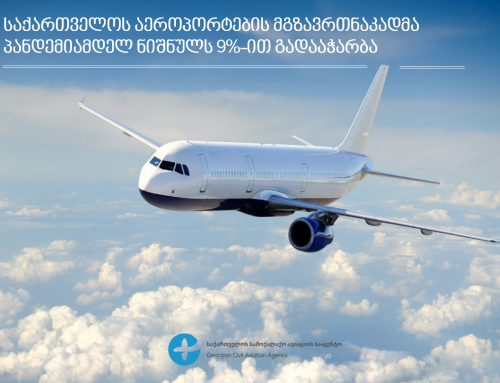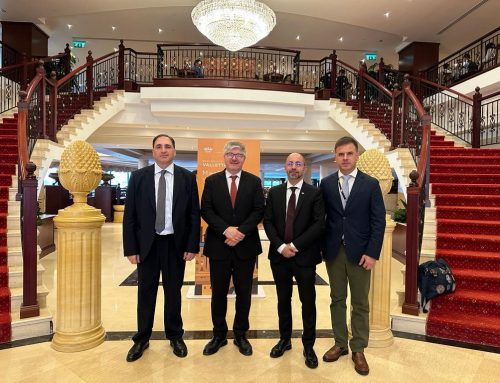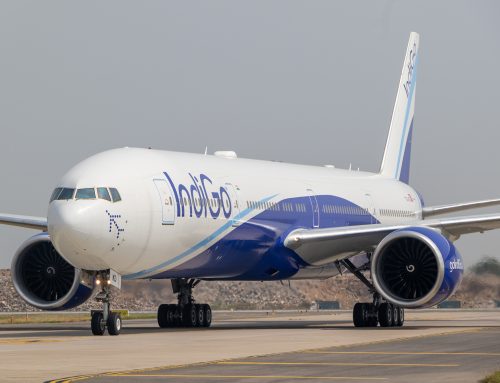The main goal of the Civil Aviation Agency is to ensure safe operation of civil aviation, for which it implements international standards and performs oversight of aviation safety and security.
At the time the Agency was founded (2011), Georgia’s overall rate of implementation of international civil aviation standards and safety oversight was only 32%. According to the results of the latest audit in 2018, the overall rate of effective implementation of international civil aviation standards and practices became 87.69%, thereby exceeding both 60% target indicator set by the ICAO Global Aviation Safety Plan and the European average rate (78%).
In order to fulfill its obligations under the Single European Sky, to ensure flight safety and protect interests of passengers, the Civil Aviation Agency consistently implements EU regulations on aviation safety, aviation security, protection of consumer’s rights and air traffic control. Seventeen regulations and directives have already been fully implemented, and more than thirty – partially implemented. European standards for the protection of passengers and consumers’ rights have been fully harmonized; regulation for foreign aircraft inspection, airline financial sustainability assessment, aviation occurrence notification, air navigation service certification, certification of aviation medical centers and experts, and other important regulations have been implemented.
The Agency’s goal is to protect the rights and interests of passengers through the implementation of high standards and the overseeing the compliance with applicable requirements. Introduction of appropriate regulations gave passengers the opportunity to receive compensation in line with European standards in the event of flight cancellation, long delays, refusal to board. Compensations in the event of the death of a passenger, bodily injury, delay in the transfer of the passenger and/or luggage, loss, damage or destruction of luggage have also been determined. The airlines are obliged to ensure insurance requirements complying with European standards. Rules and conditions for the provision of guaranteed and comprehensive assistance and protection of disabled persons against discrimination have been established. In accordance with the requirements of the Regulation, service points for disabled persons have been arranged by the operators at the airports of Georgia. Airports were equipped with all the necessary equipment and infrastructure necessary for the services of persons with disabilities.
The Agency ensures the implementation of the liberal aviation policy defined by the State. Air traffic agreements are based on liberal principles. Under such agreements, airlines designated by States exercise equal rights, i.e. there is no restriction on the number of designated airlines, flight frequencies, and destinations. The process of issuing a flight permit is simplified and is carried out in an accelerated 24-hour mode. As a result of the liberal policy, airlines are given the opportunity to determine flight frequencies and fare values themselves, which contributes to increased competition and in turn has a positive effect on airfare prices and the quality of service. Customers have been given an opportunity to choose options when travelling in the desired direction.
The Agency continues its work towards institutional development and strengthening organizational capacity. An organizational structure corresponding to the world’s best practices has been established in the field of aviation. The Agency has more capacity to recruit, train and retain sufficient and qualified staff needed to carry out oversight activities. According to ICAO 2018 Audit, the indicator of Organizational Part (ORG) increased to 91.67%.
In order to enhance cooperation and share experience with international institutions, technical agreements have been signed with European Aviation Safety Agency (EASA), European Organization for the Safety of Air Navigation (EUROCONTROL), and the aviation authorities of France and Austria. The Memoranda of Understanding have been signed with the Single European Sky ATM Research Program (SESAR) and the International Air Transport Association (IATA).
The Agency establishes the regulations aimed to facilitate the development of domestic flights and the integration of new destinations in the civil aviation system. The concept of a runway and the requirements for it were defined. Runways will not go through the full certification process that aerodromes undergo. The process of selection of suitable locations for the arrangement and operation of heliports is underway. Aviation security requirements for small aerodromes have been eased. Simplified requirements for mobile refueling stations located outside the area of certified aerodromes have been introduced. This contributes to the flexibility and availability of fuel supply within the country.
Regulations for the operation of light aircrafts have been developed, which aim to ensure the safety of flights of these aircrafts in the airspace of Georgia.
The process of integration of unmanned aircrafts into the Georgian civil aviation system through the introduction of rules related to the safe operation of these aircrafts and the implementation of appropriate monitoring mechanisms is underway.




